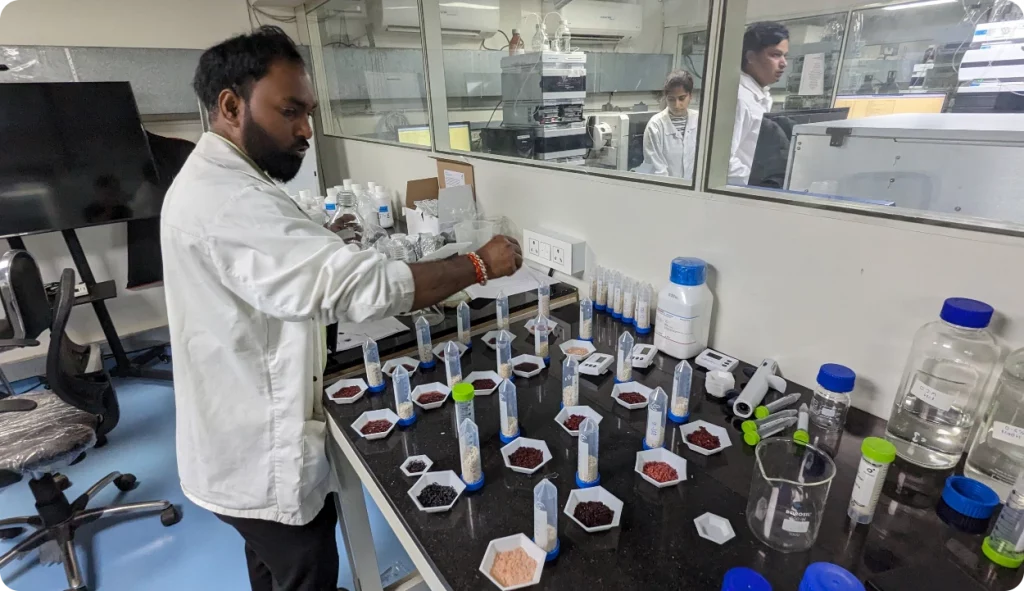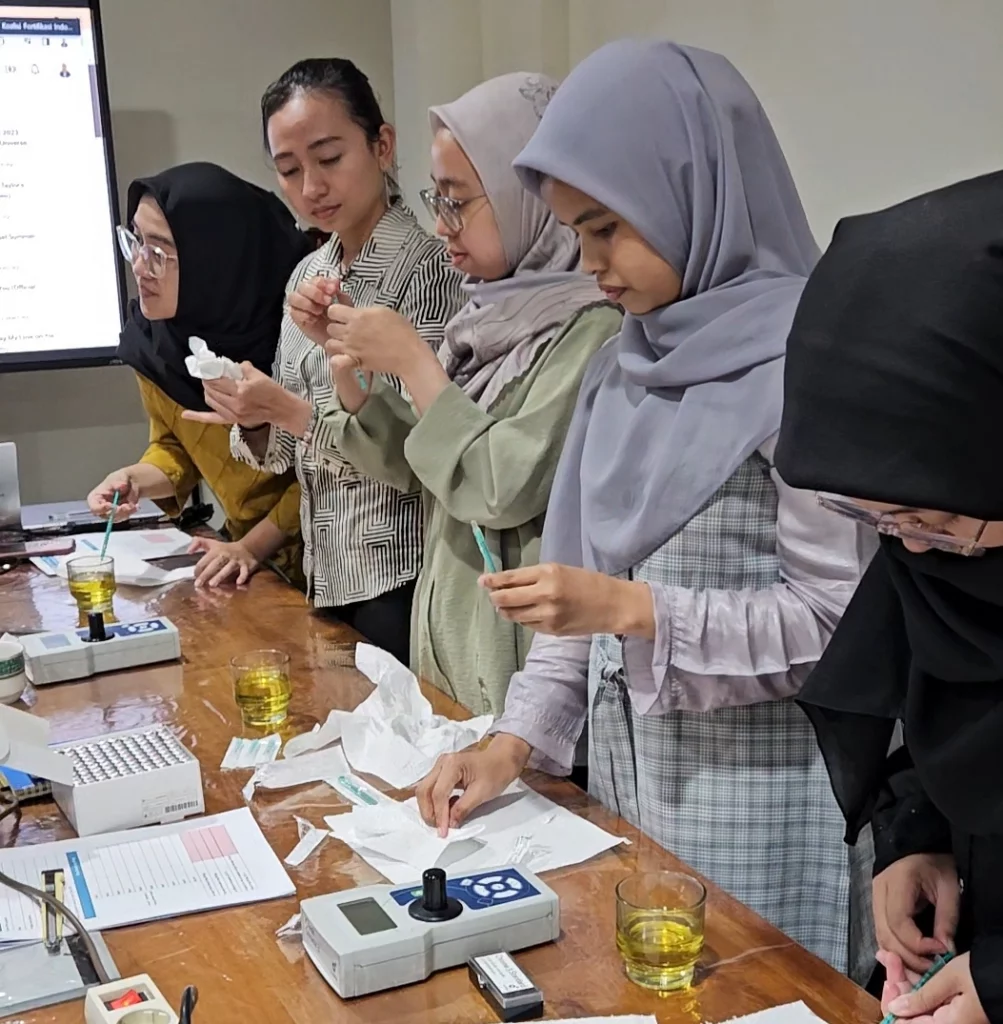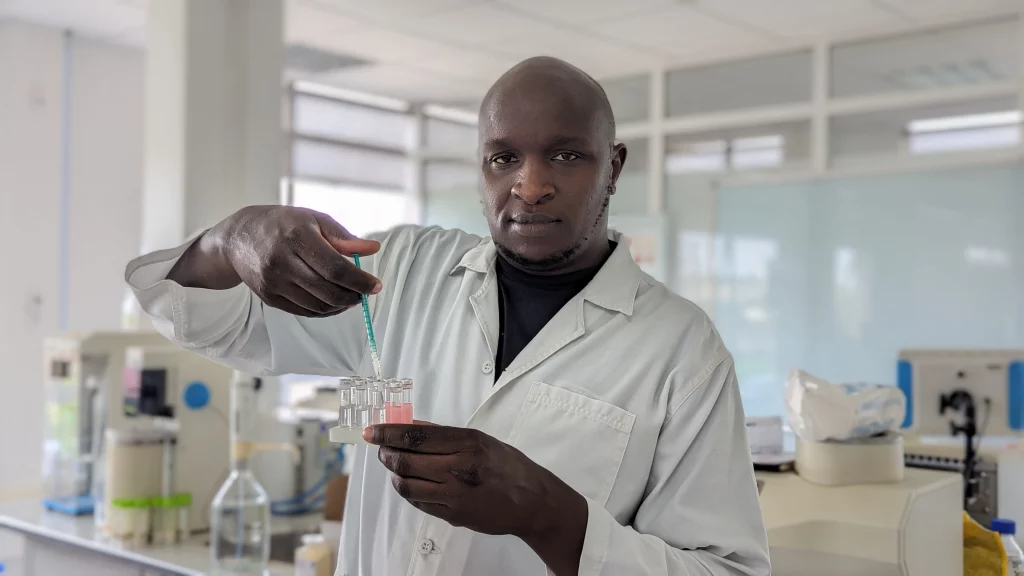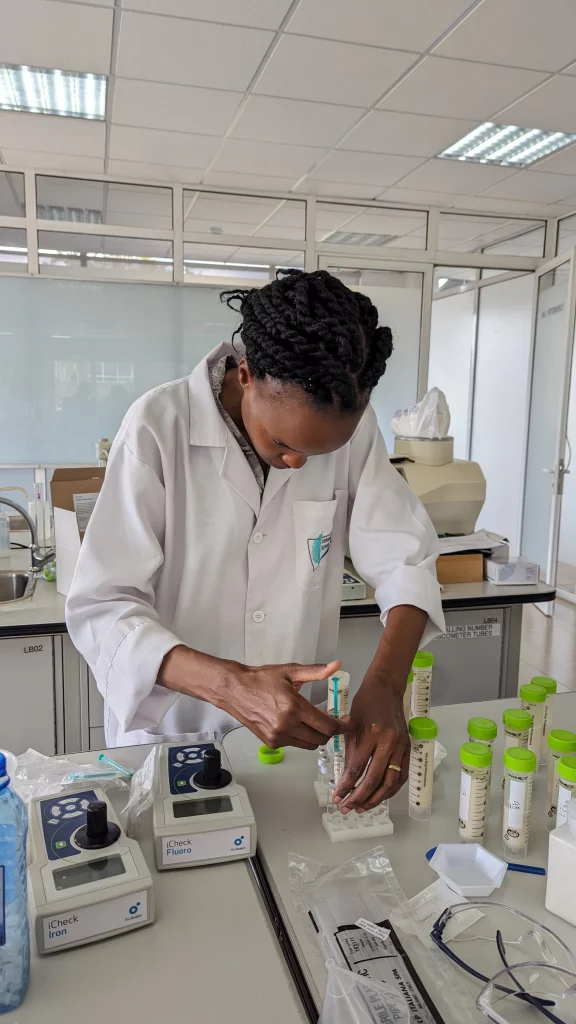Piloting a rapid, cost-efficient, scalable approach to test the quality of fortified foods at the market level, as well as assessing the performance of local analytical solutions. Applied in Indonesia, Kenya, and India, this method has the potential to deliver fast, actionable results to improve program response times.


The project focused on the following objectives:
QuImpact coordinated sampling, trained local analysts, conducted testing, and analyzed data in collaboration with local organizations:
Sampling strategies targeted major food brands and regions covering 40-85% of relevant markets. Testing methods combined qualitative “yes/no” assessments with quantitative iCheck devices and local as well as German-accredited laboratory analysis to assess the applicability of different methods
The fortification of staple foods with micronutrients is a critical public health strategy to combat malnutrition. However, ensuring the quality of fortified foods remains a challenge in many regions. QuImpact, a non-profit technical service provider, partnered with BioAnalyt to assess micronutrient testing methods and fortification quality at the market-level in Indonesia, Kenya, and India. Supported by the Gates Foundation and coordinated locally by Nutrition International (NI) , the project aimed to validate a rapid testing methodology for micronutrient levels and provide baseline data to inform stakeholders and improve fortification programs.
The project focused on the following objectives:
QuImpact coordinated sampling, trained local analysts, conducted testing, and analyzed data in collaboration with local organizations:
Sampling strategies targeted major food brands and regions, covering 40-85% of relevant markets. Testing methods combined qualitative “yes/no” assessments with quantitative iCheck devices and local as well as German-accredited laboratory analysis to assess the applicability of different methods
The rapid testing results correlated well with traditional laboratory methods, demonstrating the potential of iCheck devices to provide reliable and actionable data at a fraction of the cost.

The study highlighted the importance of early stakeholder engagement, comprehensive training for local analysts, and robust sampling protocols. Challenges such as logistical delays, resource constraints, and technical difficulties in interpreting low micronutrient levels underscored the need for meticulous planning and ongoing capacity building.
Key recommendations for future assessments include:
By enabling faster, more affordable compliance monitoring, rapid testing methodologies pave the way for improved fortification practices, ultimately contributing to better public health outcomes. QuImpact is committed to scaling this approach and supporting local stakeholders with training, logistical support, and technical expertise. These efforts will drive the adoption of sustainable monitoring systems to ensure fortified foods meet national standards and reach those in need.

Rheinstraße 17, 14513 Teltow.
Berlin, Germany